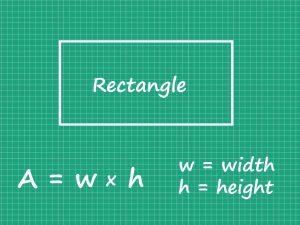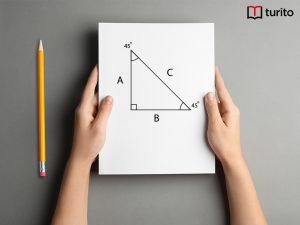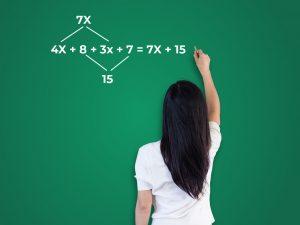Introduction:
The total bill for a certain thing is 246.
The customer paid in the given denominations.
From this, we can say how he used hundreds, tens, and ones.


Ones, tens, and hundreds place:
- A number can have many digits and each digit has a special place and value. Starting from the right the first digit will be at one place, the second digit at the tens place, and the third digit at the hundred’s place.
Example: H T O
1 0 0
Place Value:
In math, every digit in a number has a place value. Place value can be defined as the value represented by a digit in a number on the basis of position.
Example: In number 850, 5 represents 5 tens or 50, however the 1 in 1000 represents 1 thousand or 1000.
Blocks:
Base ten blocks are used to represent numbers as a base ten model. Base ten blocks mimic the base ten number system by representing the ones, tens, hundreds, and thousands of places.

Estimation Sum
- The whole numbers are first rounded as specified, i.e., rounded to the nearest ten, hundred, and so on. Then the sum of the rounded whole numbers is found to estimate the sum of the whole numbers.
- When rounding, follow these rounding rules: If the number being rounded is less than 5, round down or else round up.
Example:

Sol: 26 has to round up near ten, i.e., 30.
And 12 has to round down near ten, i.e., 10.
Total sum is 40.
Word Problems on Adding Numbers by Using Blocks
Example 1:
Margot counted 244 manatees one year and 178 manatees the next. How many manatees did Margot count all together?

Solution:
First estimate and then use the place value to add the numbers.
244 is about 200
178 is about 200
200 + 200 = 400
The sum is about 400 manatees.
Add each place value. Start with hundreds.
244
+ 178
300 2 hundreds + 1 hundred
110 4 tens + 7 tens
+ 12 4 ones + 8 ones
422
300, 110 and 12 are partial sums.

244 + 178 = 422 manatees.
Example 2:
A school cafeteria sold 225 lunches on Monday, 140 lunches on Tuesday, and 226 lunches on Wednesday. Did the cafeteria sell more lunches on Monday and Tuesday or Tuesday and Wednesday? Use place-value blocks or drawing to solve.
Solution:
Lunch boxes sold on Monday = 255

Lunch boxes sold on Tuesday = 140



Number of lunch boxes sold on Monday and Tuesday = 255 + 140 = 395
Number of lunch boxes sold on Tuesday and Wednesday = 140 + 226 = 366

By observing the drawing of blocks tables. The lunchboxes sold on Monday and Tuesday are more than Tuesday and Wednesday.
Exercise:
(1 – 5) Estimate the sum
- 324 + 135
- 163 + 225
- 456 + 322
- 158 + 256
- 752 + 354
- Henry believes the sum of 275 + 313 is 598. Is that correct? Use place-value blocks or partial sums in the explanation.

7. There are 18 boys and 19 girls in Mrs. Olive’s class. How many kids are there in Mrs. Olive’s class?
Concept Summary:

What We Have Learned:
- Partial sums using place values.
- Blocks addition.
- Estimation.

Related topics
Addition and Multiplication Using Counters & Bar-Diagrams
Introduction: We can find the solution to the word problem by solving it. Here, in this topic, we can use 3 methods to find the solution. 1. Add using counters 2. Use factors to get the product 3. Write equations to find the unknown. Addition Equation: 8+8+8 =? Multiplication equation: 3×8=? Example 1: Andrew has […]
Read More >>Dilation: Definitions, Characteristics, and Similarities
Understanding Dilation A dilation is a transformation that produces an image that is of the same shape and different sizes. Dilation that creates a larger image is called enlargement. Describing Dilation Dilation of Scale Factor 2 The following figure undergoes a dilation with a scale factor of 2 giving an image A’ (2, 4), B’ […]
Read More >>How to Write and Interpret Numerical Expressions?
Write numerical expressions What is the Meaning of Numerical Expression? A numerical expression is a combination of numbers and integers using basic operations such as addition, subtraction, multiplication, or division. The word PEMDAS stands for: P → Parentheses E → Exponents M → Multiplication D → Division A → Addition S → Subtraction Some examples […]
Read More >>System of Linear Inequalities and Equations
Introduction: Systems of Linear Inequalities: A system of linear inequalities is a set of two or more linear inequalities in the same variables. The following example illustrates this, y < x + 2…………..Inequality 1 y ≥ 2x − 1…………Inequality 2 Solution of a System of Linear Inequalities: A solution of a system of linear inequalities […]
Read More >>Other topics











Comments: